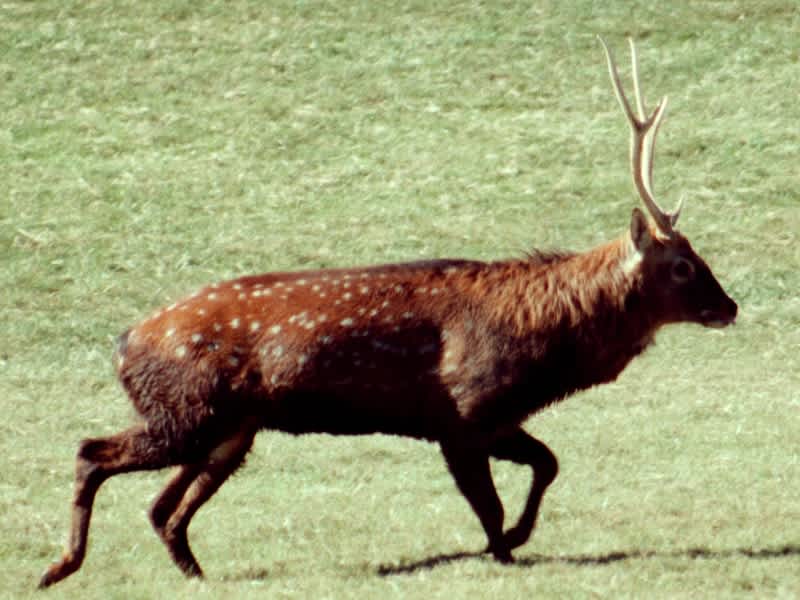Japan Imports U.S. Wolf Urine to Deter Deer
OutdoorHub Reporters 06.24.13

Every year in the United States deer-automobile collisions account for nearly $1 billion in property damages and 200 human deaths. It seems that Japan is also having similar difficulties, but instead of roadways, it’s the island nation’s train tracks that are receiving the most attention.
Japan’s native sika deer is a triumph of modern conservation. A century ago, the deer teetered on the brink of extinction along with similar declines in the species all across Asia. Strong conservation efforts managed to help the deer not only recover but explode across Japan. Now the country has the highest population of sika deer in the world, but not without cost. With the recovery of the sika deer came the extinction of the island’s native wolf. Without their main predator, the deer population soon reached over 650,000 and began threatening the country’s traffic-ways, agriculture, and forests. According to AFP, there were over 2,581 deer-related train accidents last year and the number seems to be only rising. Not even eight-foot fences could stop the animals from milling near the train tracks.
Transport operators came up with a new plan: importing wolf urine from America, spraying down train tracks with the liquid, and broadcasting recorded lion roars nearby. It is a measure that experts expect to work only temporarily. Local governments have began offering bounties for deer hunting, but the problem remains that Japan has a shortage of sportsmen.
Some conservationists are pushing for a dramatic move–why not import the wolves themselves instead of just the urine? The wolf has a storied history in Japanese mythology, even though the last of its kind died early in the last century. Groups such as the Japan Wolf Association advocate bringing over gray wolves from America or Tibetan wolves to begin building a native population. The wolves will not only keep the deer in check but mark a long-awaited return. This idea is not universally supported and some fear that the wolves will have a worse impact on farmers than the wild deer.
Many sportsmen believe that the only sustainable option is to revitalize Japan’s flagging hunting culture, which according to the Wall Street Journal has plummeted to only 186,000 licensed hunters and trappers. These hunters are also predominately older men. Some believe that that popularizing venison as food will help to drive younger hunters to the sport, with many urban restaurants now offering deer meat as a dish.

